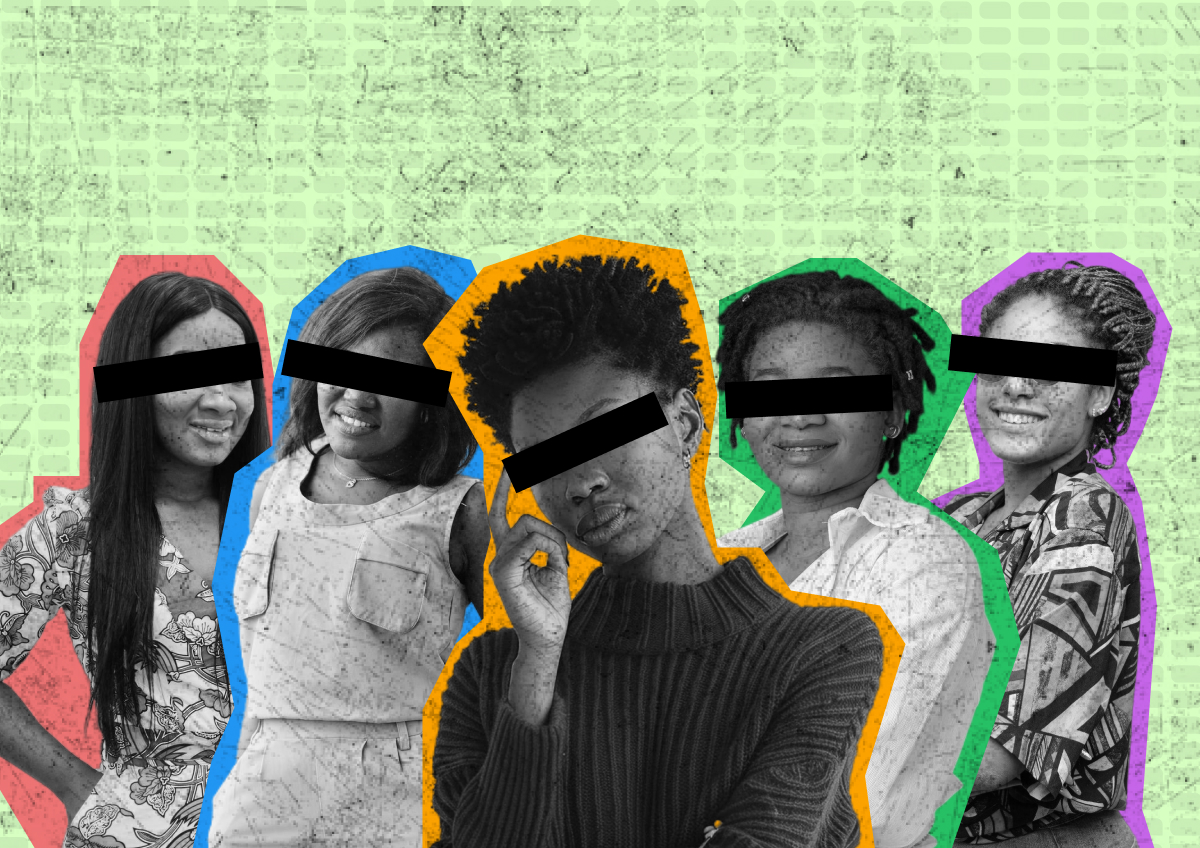Despite the financial strain, these Nigerian ladies continue to support their families, driven by love and responsibility. Their resilience is a testament to the strength and dedication of first daughters across the country, who balance their personal aspirations with the needs of their families.
Oluwakemi’s Story – Sacrifices & Guilt
Oluwakemi, a 30-year-old marketing executive in Lagos, is the eldest of four children. Growing up in a modest household, she always felt the weight of responsibility. After her father passed away when she was just 17, the burden of supporting her family fell on her shoulders.
“My father was our sole breadwinner,” Oluwakemi recalls. “When he passed, everything changed. I had to work part-time jobs while studying at university just to keep us afloat.” Upon graduating, she landed a well-paying job, but her salary wasn’t enough for any significant impact because it had to stretch to cover her siblings’ school fees, household bills, and her mother’s monthly medical expenses.
“I love my family, but it’s tough. There are times I want to invest in myself, maybe take a course or travel, but I can’t. The guilt is overwhelming,” she says, her voice tinged with exhaustion. Despite the sacrifices, Oluwakemi remains resolute, finding joy in her siblings’ achievements and the stability she provides for her family.
Chigozie’s Story – Pending Tech Dreams
Chigozie, a 28-year-old software developer in Abuja, is also the first daughter in her family. Her journey with the black tax began early, as her parents struggled to support her and her five younger siblings. “From a young age, I knew I had to succeed not just for me, but for my entire family,” she says.
After securing a scholarship to study abroad, it felt like the family’s financial woes were behind them. However, even with a high-paying job post-graduation, the demand continues. “I send money home every month. My parents depend on it for their upkeep, and my siblings need it for their education.”
Chigozie dreams of starting her own tech startup; an insurtech solution, but her savings are constantly depleted. “It’s frustrating sometimes. I see my colleagues investing and growing their wealth, while I’m stuck in a cycle of remittances,” she shares. Still, she remains optimistic, hoping that her siblings will soon be self-sufficient and the burden will ease.
Idongesit’s Story – Nursing dreams & financial drain
Idongesit, a 35-year-old nurse in Port Harcourt, grew up in a family of seven. Being the eldest, she was always seen as the second mother. “My parents relied on me to help out with my younger siblings, both financially and emotionally,” she explains.
After completing her nursing degree, Idongesit found herself constantly balancing her own needs with those of her family. “I wanted to buy a car, but my brother needed tuition for his engineering course. Then my sister had a baby, and there were medical bills to pay,” she recounts.
Despite her sacrifices, Idongesit says she doesn’t harbor resentment. “It’s challenging, but it’s also fulfilling. Knowing that I’m making a difference in their lives keeps me going,” she says with a smile. Her hope is to eventually open a clinic and daycare, a dream she clings to despite the financial drain.
Jessica’s Story – Struggling business, delayed dreams
Esther, a 27-year-old entrepreneur in Cross River, faced the harsh reality of black tax from an early age. “My parents struggled to make ends meet. As the first daughter, I had to step up,” she recalls. Jessica started working right after secondary school to support her four younger siblings.
With determination, she saved enough to start a small business. However, the profits were often redirected to cover family expenses. “I try my best to reinvest in the business, but there’s always something – school fees, medical bills, or unexpected emergencies,” she says.
Jessica’s dreams of expanding her thrift business into a big store for thrift wears, but the financial obligations are a constant hindrance. “It’s like running on a treadmill. I’m working hard, but I’m not getting ahead,” she admits. Nevertheless, Jessica remains hopeful, believing that her perseverance will eventually pay off.
Mfonobong’s Story: The Sacrifices Made
Mfonobong, a 28-year-old teacher from Akwa Ibom, knows the sacrifices that come with being the first daughter all too well. Her mum had died when she was just 12 years old and After her father’s health deteriorated, she became the primary breadwinner for her family at 22.
“My salary as a teacher is modest, but it’s all we have,” she says. “I pay for my siblings’ school fees, medical bills, and even some of our extended family’s expenses.”
Mfonobong’s dreams of furthering her education and pursuing a master’s degree have been put on hold indefinitely. She often finds herself prioritizing her family’s needs over her own aspirations.
“It’s tough… I look forward to better days,” she shares.
Mfonobong has started attending financial literacy workshops to better manage her finances and find ways to save. She discovered the Sycamore mobile app where she saves N10,000 weekly which is 50% of what she makes from home lessons.
She hopes to break the cycle of dependence and create a more sustainable future for herself and her family.







